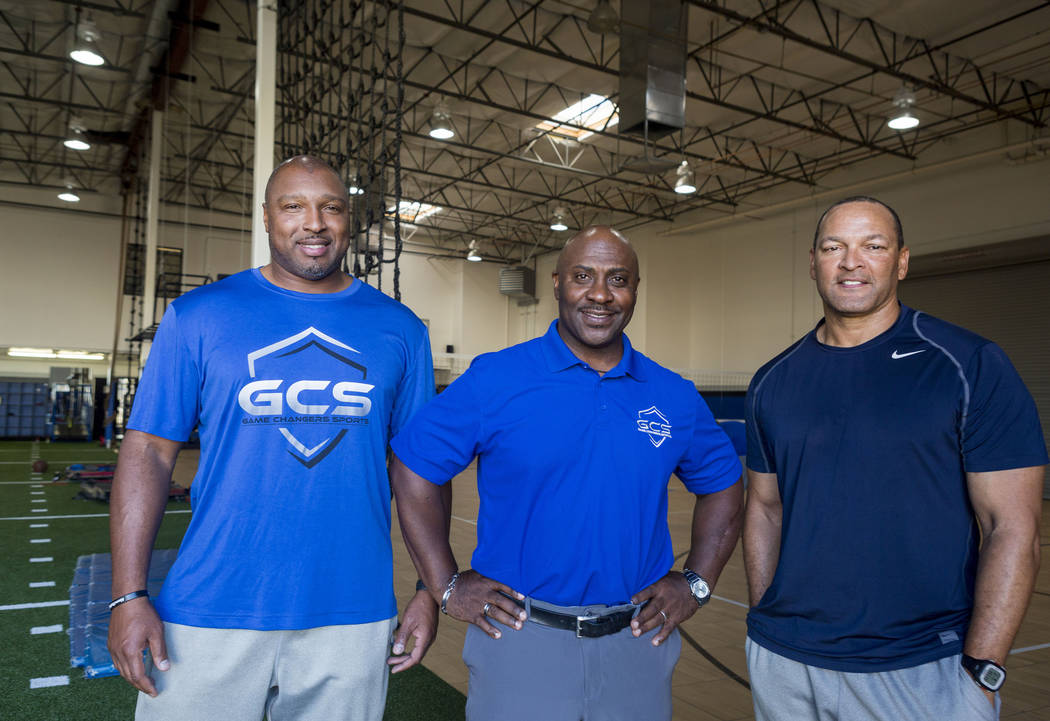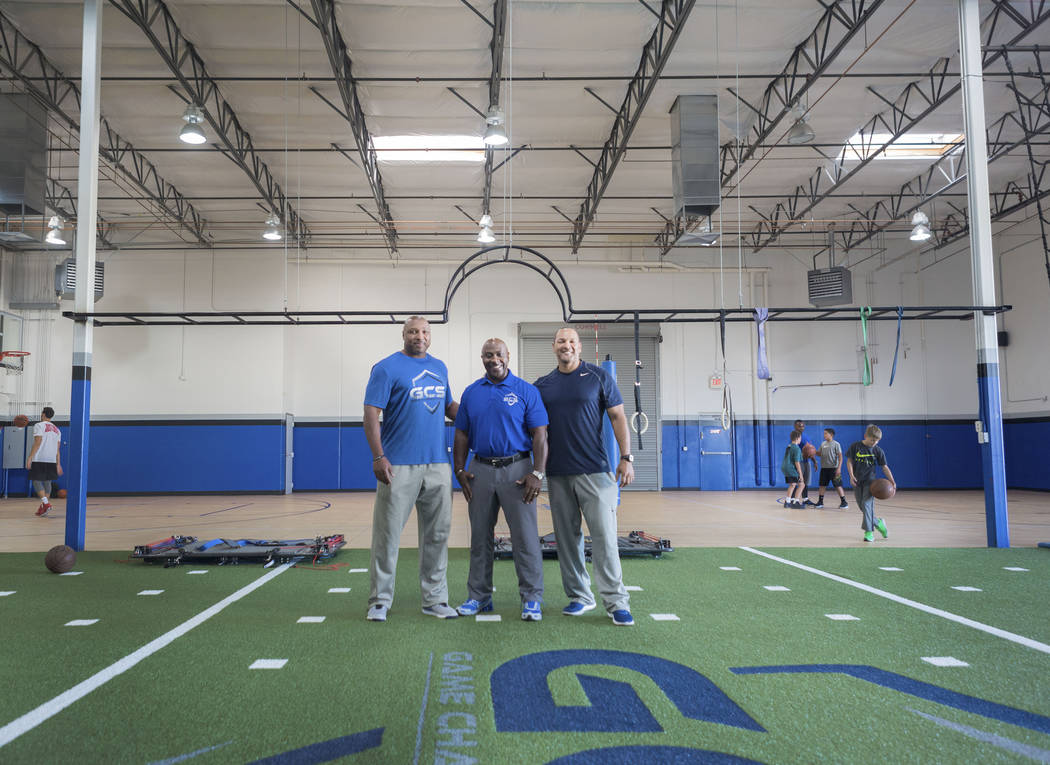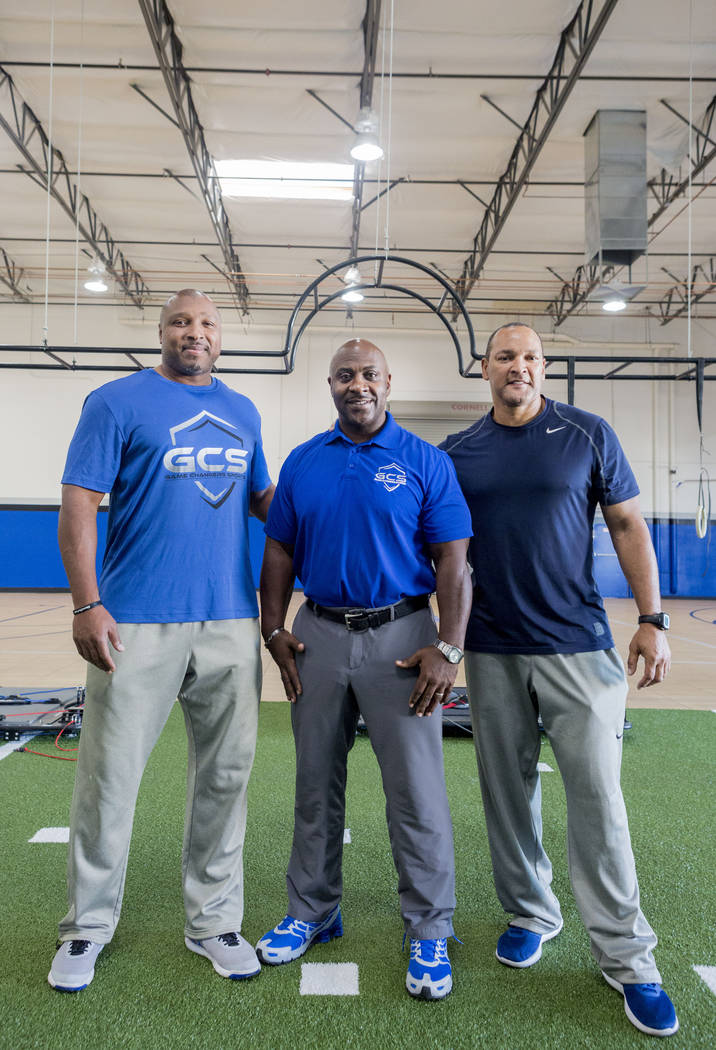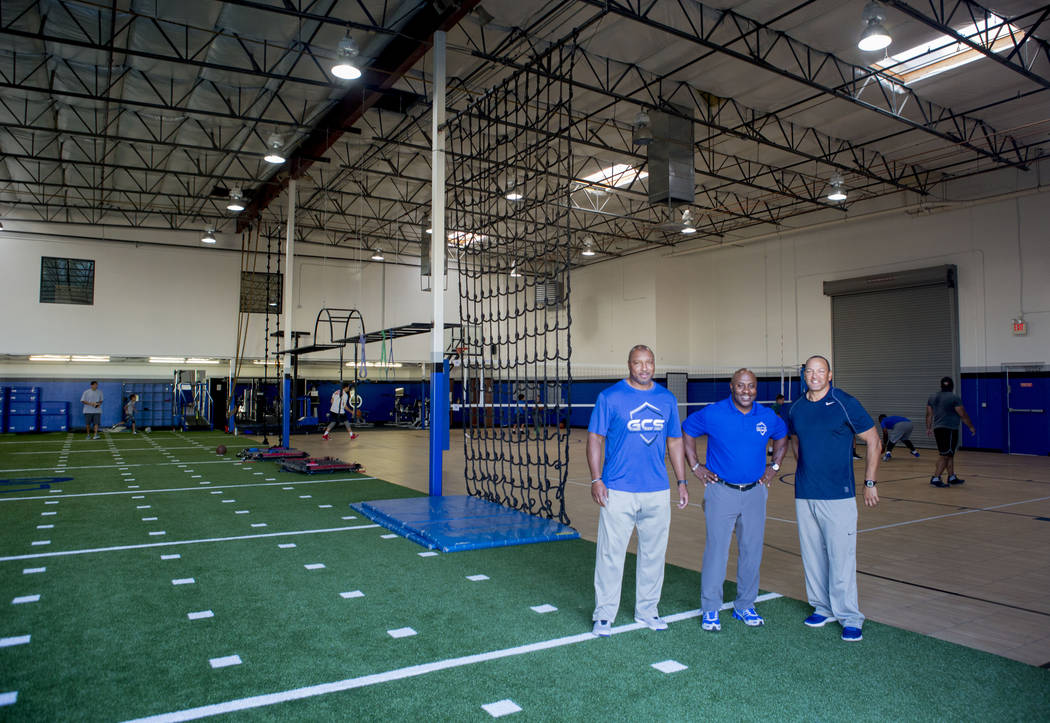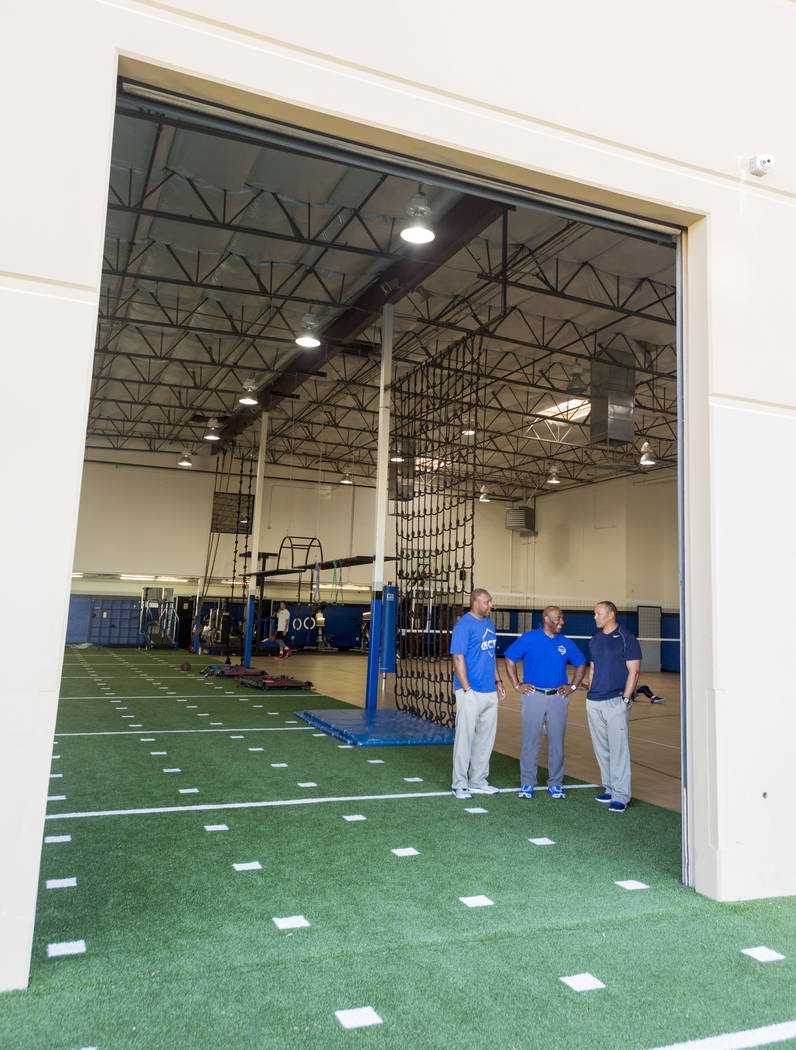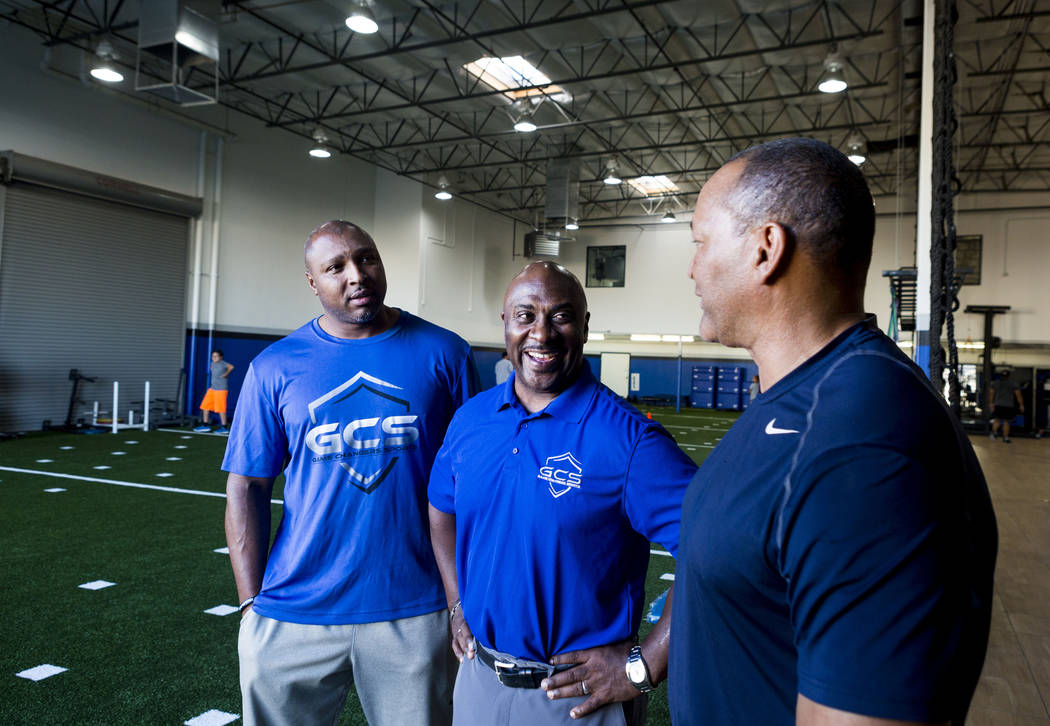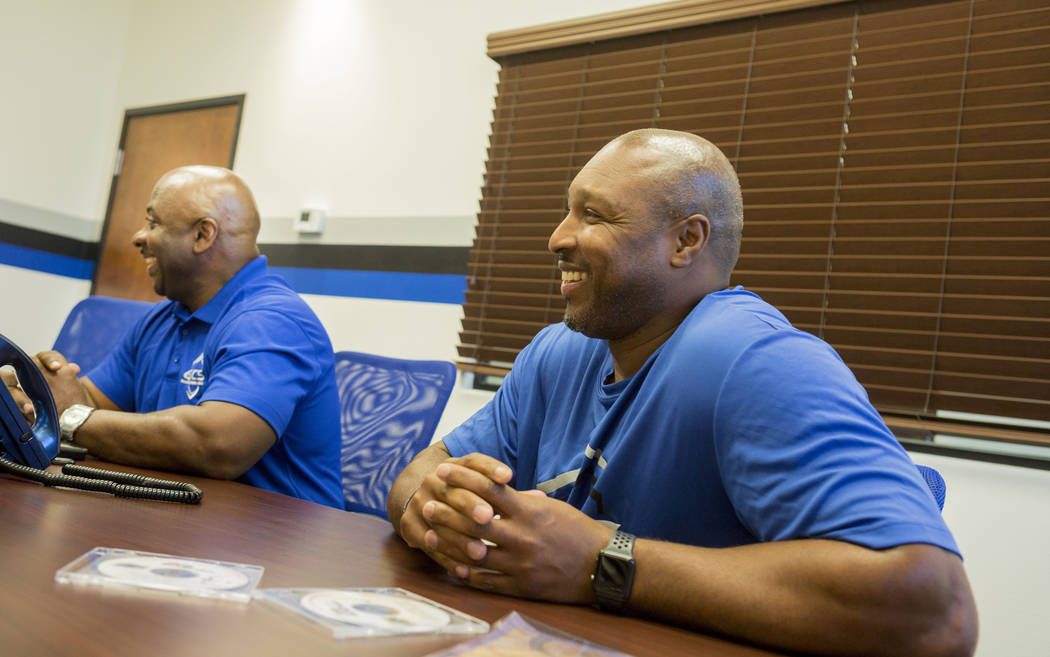Las Vegas gym provides training and mentoring to at-risk kids
They’re not running with gangs. They’re not running into trouble. They’re not running away. They’re just … running. Legging it out. Thundering down the gym floor turf. Wearing smiles as wide as their strides.
“It’s better to work out than to be on the streets,” says 15-year-old Jerome, a Las Vegas High School sophomore. “I need more improvement, but I plan on working my way up from high school to college and one day the NFL.”
Working out their bodies. Working out their lives. While the former is a given (this is a gym, after all), the latter can be a happy byproduct for at-risk kids amid the physical exertion and— potentially even more impactful — the behavioral examples at Game Changers Sports on South Decatur Boulevard.
“These are kids coming from low-income backgrounds and some of them are entering the juvenile justice or foster care systems,” says Brigid Duffy, director of the juvenile division of the Clark County District Attorney’s office, who is instrumental in partnering with the gym’s four co-owners for its Transforming the Game program of physical training and role-model mentorship.
“We want to get to them before they get to those systems,” says Duffy, who is on the program’s board, along with State Assembly Speaker Jason Frierson. “If I can get a kid to come here and do something positive with their life, I’m preventing the next car-jacking, the next robbery. I’m stopping victims from happening. It’s the best thing I could ever be a part of.”
Preparing to officially unveil its status as a nonprofit organization on Nov. 3, followed by an open house on Nov. 4, the free, ongoing program supervised by those co-owners — former Navy SEAL Mel Spicer III, former NFL player Rodney Rice, probation officer Lamont Hicks and businessman Manus Edwards — provides strength and agility conditioning and sports coaching for boys and girls ages 6 to 18. About 30 kids have been through the program, and 12 are currently enrolled. Additional components, such as nutrition education, are planned.
“I think we all flirt with disaster a little,” says Spicer, who grew up in Pittsburgh. “All of us had our exposure to gangs but we try to make the right decision. For all of us, balls helped keep us clean. We all got scholarships to get out of high school and go to college and play ball. So we’re trying to save them from going down the wrong path.”
Fanning out over the gym floor, kids and teens run the athletic gamut — shooting hoops over here, spiking volleyballs over there, tossing football spirals on this side, fine-tuning their agility (leaping from the ground to a platform) on that side — under the friendly but laser-focused gazes of their coaches.
“Sports saved my life — it saved all of us. If I didn’t have sports and that structure, I don’t know what I would look like today,” says Rice, a former defensive back with the New England Patriots and Tampa Bay Buccaneers, who earned a college degree in social work.
“We’re teaching them how to be prepared, how to be organized, be polite, be considerate, show gratitude, understand being part of a team,” he says, noting that although they don’t function as therapists, the children often confide their stories of difficult young lives marked by foster home shuffles and, sometimes, law-breaking.
Having introduced Duffy to the program, probation officer Hicks, a former UNLV linebacker and current football coach at the Spring Mountain Youth Camp correctional facility, points out that in court, caseworkers have highlighted the progress kids make in school after participating in Transforming the Game.
“Most of these kids have trust issues because most of the people they’ve depended on have let them down — the people they look up to are in gangs or selling drugs,” Hicks says. “But after every class I train, I ask the kids how their grades are. We always make sure they have good grades and are being good at home.”
Raised on the south side of Chicago, co-owner Edwards moved to Las Vegas to escape gang influence, and wants to ensure that his diversion from a dangerous path sets an example, even when the physical training gets intense. “They know that here at Game Changers, we’re going to push them but we’ll be happy to see them,” he says. “They say, ‘They’re going to yell at me, but they’re going to give me a hug afterward.’ ”
A leader emerges
“I was him,” says former NFL player Rodney Rice, gesturing toward a 14-year-old Transforming the Game athlete, a quiet, respectful Centennial High School student who identifies himself as K.P. “Same desire, same heartbeat. The same potential is there. He’s a good athlete right now, but we want a good man. Someone to succeed and take our spots.”
And K.P. seems eager to step up. “The coaches are like father figures to me, they want to lead me to a better path,” says K.P., who was brought into the program by Brigid Duffy, director of the juvenile division of the Clark County District Attorney’s office, with permission from his guardians. Without revealing details K.P.’s situation, she notes: “He looked at me, a white female DA, like, what is your business in my life?” Duffy says.
“But I knew he would benefit from this program. He has changed a lot, he’s way more confident, and the coaches have asked him to help coach the younger kids because he has been such a leader.”
Positivity, it turns out, can be contagious, as suggested by K.P.’s emergence as a teen leader-in-training. Says the young man with the shy smile: “I like when people look up to me.”
Contact Steve Bornfeld at sbornfeld@reviewjournal.com. Follow @sborn1 on Twitter.



